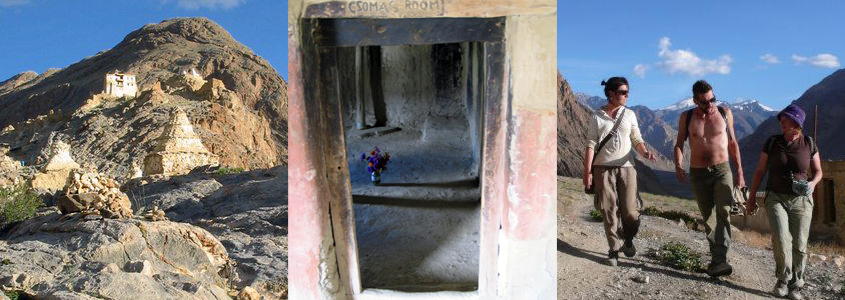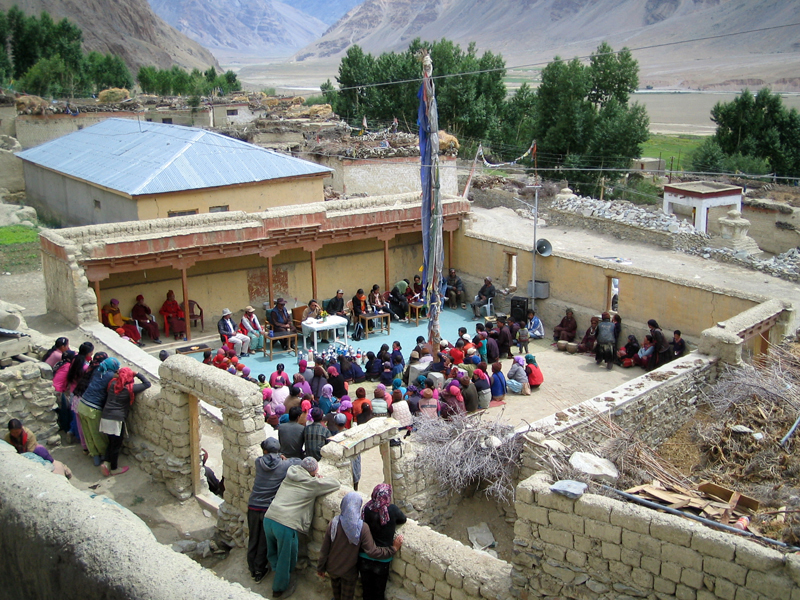IN THE WAKE OF CSOMA
Alexander Csoma de Kőrös (27 March 1784 – 11 April 1842), born Csoma Sándor, also known as Alexander Csoma de Kőrös, was a Hungarian philologist and orientalist, author of the first Tibetan - English dictionary and grammar book. He was born in Kőrös, Grand Principality of Transylvania (today Chiuruş, Romania). Hoping that he would be able to trace the origin of the Magyar (Hun) ethnic group, he set out for the East in 1820, and after much hardship along the way, arrived in Ladakh (Himalaya). He lived for a year and a half (20 June 1823 – 22 October 1824) in the Royal Palace in Zangla (Himalaya, Tibet), where he studied the teachings of Buddha in the Tibetan language and wrote the Tibetan – English dictionary, which opened the teachings of Buddha to the world.
The memory of Kőrösi Csoma: He was declared as a Bodhisattva in 1933 in Japan. Alexander Csoma de Kőrös became the embodiment of the Buddhist ideal: a Bodhisattva, a hero of awakening, able for the great deed: he opened the door for the world towards Buddhism.
The course of the game we looking for the tibetan buddhist treasures on the real exploratory archaeological map of Zangla. We are walking in the wake of Alexander Csoma de Kőrös and we use his footprints. :) The making of the game is a tribute to the teachings of Shakyamuni Buddha and the life and work of Alexander Csoma de Körös (2012 marks the 170th anniversary of Csoma’s death).
In the summer of 2008 a group of architects decided to do some emergency interventions on Zangla Palace, in order to save the room where Alexander Csoma de Kőrös started to write his dictionary in 1823. Csoma`s humble open-minded attitude towards cultures - he learned most of the languages of the regions he traveled through - his slow way of traveling overland on feet from Europe to India, his determination keeps inspiring us even today. International volunteers come to Zangla and join efforts with local people to work on conservation, to teach or to build a solar school. They learn about the ladakhi culture through living, eating, playing and working together with the local community. More information: Csoma’s Room Foundation.
REVIEWS


